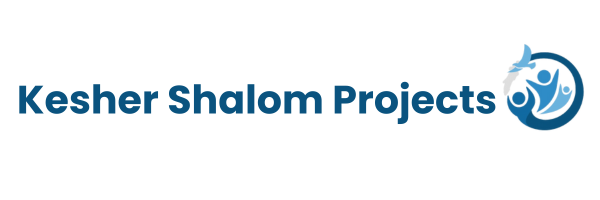The Intersection of Mental Health and Antisemitism: A Critical Imperative
In the current landscape of rising antisemitism, the intersection of mental health and the fight against antisemitism has become a focal point of my professional and personal efforts. Understanding the profound impact of macro gaslighting and discrimination on individuals, communities, and society at large is not only crucial but imperative.
The Individual Impact
Antisemitic acts inflict deep trauma, leading to a range of mental health issues such as anxiety, depression, and PTSD. The phenomenon of macro gaslighting, where the reality of antisemitism is denied or minimized, exacerbates these effects. This creates a distorted reality that isolates and destabilizes individuals, undermining their mental well-being. Mental health professionals must recognize and address these unique challenges, providing safe spaces to validate experiences and promote healing.
The Community Impact
Jewish communities experience collective trauma that erodes trust and cohesion. The persistent presence of antisemitism, coupled with macro gaslighting, significantly impairs communal resilience and solidarity. This distortion not only diminishes the community’s sense of security but also weakens the social fabric that binds its members together. Combatting this requires targeted mental health interventions that foster collective healing and resilience.
The Societal Impact
Unchecked antisemitism and the normalization of macro gaslighting contribute to an environment where prejudice flourishes, threatening social cohesion and justice. When society fails to address these problems, it allows hatred to persist, creating a breeding ground for bigotry that eventually affects everyone. Society’s failure to understand the psychological processes that enable the spread of antisemitic propaganda only intensifies the problem.
Antisemitism of Identity Destabilization & Propaganda
One of the most destructive impacts of antisemitism is identity destabilization. Antisemitic rhetoric shakes the core of individuals’ sense of self and belonging, often leading to profound identity crises and deep psychological challenges. Moreover, understanding why people fall for antisemitic propaganda is critical to combating its spread. Cognitive dissonance reduction, a psychological process where individuals reconcile conflicting beliefs by accepting simplified, often harmful narratives, plays a pivotal role. Propaganda exploits this dissonance, offering a way to resolve discomfort by promoting scapegoating and prejudice. Understanding and addressing this manipulation are essential to both healing from and preventing antisemitism.
The Importance of Understanding and Addressing These Issues
Mental health professionals and societal stakeholders need to understand these dynamics. This understanding can lead to more effective support systems, therapeutic approaches, and advocacy efforts that aid those directly affected and work towards a more inclusive and understanding society. By addressing the trauma caused by antisemitism as well as understanding how antisemitic propaganda works and the psychological processes behind it, we can develop more effective support systems, therapeutic approaches, and advocacy efforts. These strategies are necessary not only to help those directly affected but also to prevent the further spread of hate and disinformation.m and countering macro gaslighting, we can foster a healthier, more resilient community and society.
Moving Forward Together
At Kesher Shalom Projects, we integrate these insights into ongoing initiatives, expanding collaborative efforts to combat antisemitism and provide support to those affected. By working together, we can better support individuals and communities and build a society that stands firmly against prejudice and hatred.
Understanding the critical intersection of mental health, antisemitism, and the psychological manipulation behind propaganda is not just a professional duty—it’s a moral imperative. It’s time to address the deep-rooted impact of these issues so we can create a more inclusive and just society for all.

